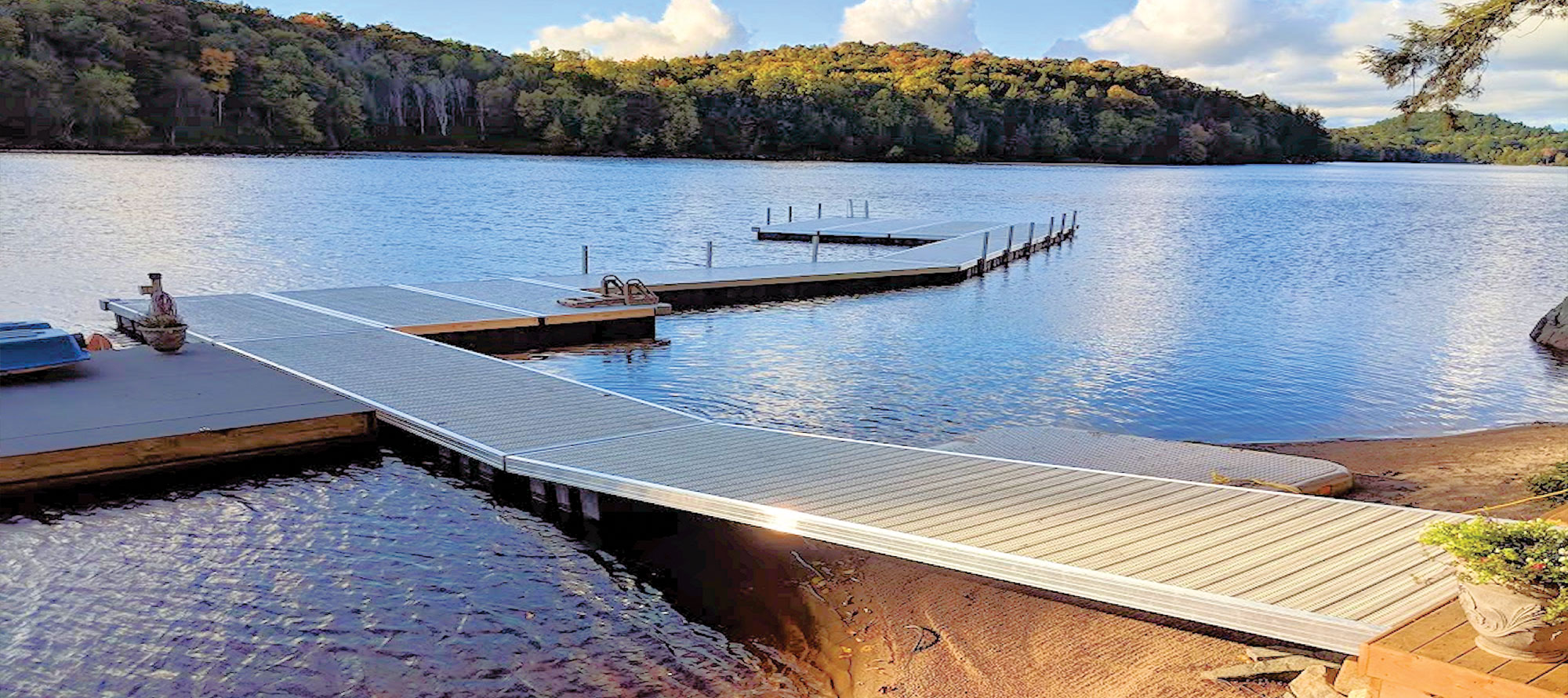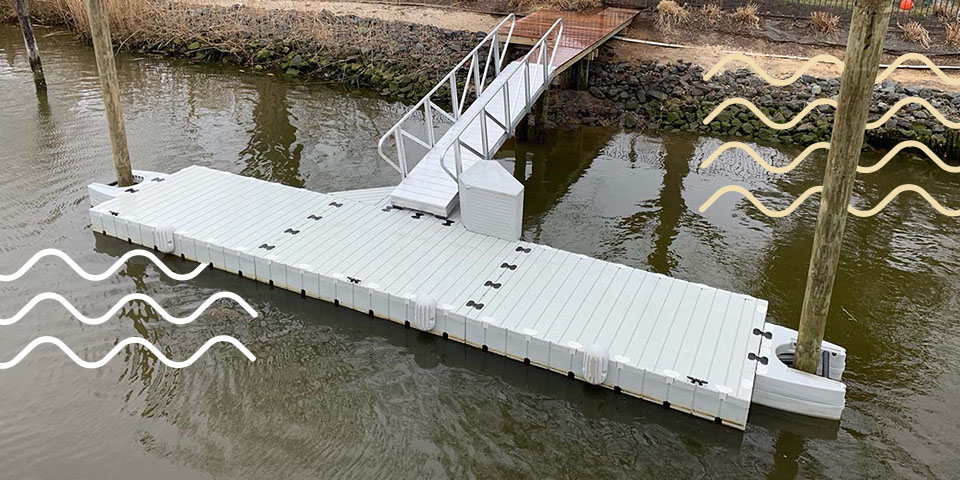Floating Docks: The Perfect Option for Versatile Water Access
Floating docks present a compelling remedy for a selection of water gain access to needs, offering versatility that goes beyond standard mooring choices. The modular nature of floating docks helps with customization, providing to certain requirements.
Benefits of Floating Docks
Floating docks offer numerous benefits that improve water access for numerous applications. Their capability to fluctuate with transforming water levels makes them specifically helpful in atmospheres with fluctuating tides or seasonal variations. This adaptability makes certain that vessels can quickly moor without problem for the water's depth, giving a reliable platform for recreational, industrial, and industrial usages.
In addition, floating docks are usually constructed from long lasting products that resist rust, making them ideal for long-term usage in aquatic settings. Their installation is generally much less invasive than traditional set docks, minimizing the ecological influence and facilitating quicker release (floating dock builder). This versatility enables simpler relocation or reconfiguration according to user needs or ecological adjustments
Safety and security is an additional key benefit; floating docks can provide secure access for individuals boarding or disembarking from watercrafts and decrease the danger of accidents related to unstable surface areas. Furthermore, they can be created to suit a range of devices, such as cleats and fenders, boosting functionality. Generally, floating docks stand for a reliable service for enhancing water gain access to across diverse sectors while promoting safety and environmental sustainability.

Sorts Of Floating Docks
Numerous kinds of floating docks cater to various needs and settings, each created with particular functions to enhance capability. The most usual types include modular docks, which include interlocking areas that permit for very easy modification and growth. These docks are suitable for entertainment usage, as they can be customized to fit different watercraft sizes and water conditions.
One more popular alternative is the fixed floating dock, which continues to be anchored in position however drifts with altering water degrees. floating dock builder. This kind is particularly suited for areas with very little tidal fluctuations, providing steady access for fishing or swimming. In addition, there are drive-on docks, which feature a sloped design that enables watercrafts to quickly drive on and off, making them ideal for personal boat and smaller sized vessels
For business applications, durable floating docks are readily available, constructed from strengthened materials to stand up to considerable lots and severe marine environments. Green floating docks use lasting materials and designs to lessen environmental impact, often integrating attributes like plants to support local wild animals. Recognizing the numerous kinds of floating docks ensures that customers can select the most proper remedy for their particular requirements.
Installation Refine Overview
An effective setup of floating docks calls for cautious planning and focus to information to make certain optimal performance and safety and security. The first step entails assessing the website conditions, consisting of water depth, present, and potential obstacles. This assessment educates the selection of the appropriate dock products and design tailored to the particular setting.
Next, obtaining necessary authorizations is important, as numerous territories have laws pertaining to building and construction on water bodies. Once consents are secured, the setup can continue. Begin by preparing the foundation, which might involve anchoring systems or pilings customized to the dock type and local problems.
Following the foundation arrangement, construct the dock sections according to maker specs. Ensure that all elements are safely fastened and aligned to withstand ecological stress and anxieties. Placement the dock in the marked location, ensuring it is degree and steady.

Maintenance Tips and Finest Practices
After the installation procedure is total, recurring maintenance plays a vital role in making certain the long life and capability of floating docks. Routine examinations need to be performed to recognize any type of signs of damage, wear, or damage - floating dock builder. Look for any type of loose installations, fractures, or separation in the dock areas, as these can compromise architectural stability
Cleaning the dock is vital to eliminate debris, algae, click to read more and various other build-up that can influence its appearance and safety and security. Use a gentle stress wash occasionally to maintain sanitation without causing damages to the surface. In addition, applying a safety sealant every few my website years can aid improve long life and resist ecological wear.
Pay attention to the mooring lines and supports, ensuring they are safe and free from deterioration. Replace any type of abject parts without delay to avoid dangers. Seasonal adjustments may additionally be necessary; throughout severe weather, strengthening the dock or rearranging can prevent damage.
Applications for Floating Docks
Floating docks serve a wide range of applications, providing to both recreational and commercial demands. In recreational settings, they supply smooth accessibility to waterways for activities such as boating, fishing, and swimming. Their flexible nature allows for setup in differing water levels, guaranteeing risk-free and secure access despite tidal changes.
Readily, floating docks are indispensable for marinas and waterfront companies. They assist in the docking of vessels, allowing reliable filling and dumping of items. Their modular layout enables very easy development or reconfiguration to suit transforming organization needs, making them excellent for boat rentals, tour operations, or fishing charters.
Furthermore, floating docks are utilized in environmental applications such as marine research and habitat reconstruction. They can work as systems for clinical researches, monitoring water quality, or conducting wild animals studies without troubling sensitive environments.
In industrial contexts, floating docks are employed in construction tasks, giving accessibility to hard-to-reach locations for equipment and employees. Their convenience, sturdiness, and minimal influence on the setting make them an ideal choice for this page a variety of applications, improving both functionality and access in different water-based environments.
Verdict
In verdict, floating docks represent an optimum solution for diverse water accessibility needs, owing to their versatility, longevity, and modular design. Floating docks offer as a beneficial asset for leisure, business, and ecological projects, making sure trusted access to rivers and advertising sustainable practices in water atmospheres.
Floating docks present an engaging service for a selection of water access needs, using convenience that transcends conventional mooring choices.Floating docks deal countless advantages that enhance water gain access to for different applications. On the whole, floating docks represent an effective service for improving water access across varied fields while advertising security and ecological sustainability.
One more prominent choice is the stationary floating dock, which remains secured in area however floats with altering water degrees.In verdict, floating docks stand for an ideal remedy for varied water access needs, owing to their adaptability, durability, and modular layout.
Comments on “Floating Docks: The Smart Option for Modern Waterside Living and Entertainment”